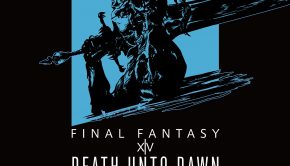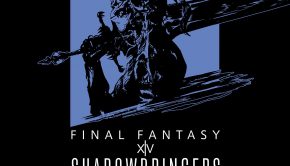Mega Man Utopia
 |
Album Title: MegaMan Utopia |
| Record Label: Suleputer |
|
| Catalog No.: CPCA-10376 |
|
| Release Date: January 14, 2015 |
|
| Purchase: Buy from CDJapan |
Overview
Rockman, better known here in the West as Mega Man, is without a doubt Capcom’s most iconic franchise. Spanning numerous series across dozens of games in addition to various anime and comics, the blue bomber requires little introduction. While Mega Man has been on the decline as of late (something I feel has plagued most of Capcom’s properties), the music in particular is still fresh in the minds of gamers after all these years. Having so many iconic melodies, particularly from the second and third games, covers from various artists have been aplenty. Contributing to that everlasting legacy of sound, Capcom released two official remix albums in 2015, one titled Rockman Utopia featuring a wide variety of upbeat styles from the main series, and another called Rockman Dystopia, a darker rock-focused collection of arrangements from the X series. Collecting the work of six Japanese artists from the esteemed group Basiscape, Utopia is a charming little disc worthy of the label and an excellent tribute to the music of the series.
Body
Azusa Chiba’s jazzy remix for the original Mega Man introduces the album in a spectacular fashion. Elecman’s theme is performed on horns, Latin piano keys, and bongos which keep the original piece’s upbeat melody intact in this excellent arrangement. The medley transitions into a techno fused rendition of Iceman’s theme, then followed by Bomb Man’s theme in a return to brassy overtones. It’s an overall exceptionally strong opener, giving the listener a good indication of what’s left to come. Chiba makes one more contribution the album with its closing track, “Unbroken Spirit,” an interpretation of the famous Dr. Wily Stage 1 BGM, arranged for violin and ethnic strings. The instrumentation is innovative and pulls many surprises I did not even think possible with this theme.
Of course, Mega Man 2 was the game I was most curious about due to it being my personal favorite entry in the series and it establishing the essential framework for the franchise’s soundscape. In “Endless Encore,” Yoshimi Kudo’s handling proves suitable and it’s a fitting tribute. The game’s stage select theme is first performed, somewhat causally even, on an organ sample before moving into a fiddle-like take on the frenzied title theme. The refrain is answered on jazzy piano, and then shifts to the staff roll, once again handled by the violin. The organ takes over the harmony with some clapping percussion and an electric guitar improvised medley. While it’s somewhat lamentable that no stage themes from the game were covered, Kudo does a fine job of providing variety in his remix of the game’s opening and closing pieces.
On the other side of the spectrum, we have the Mega Man 3 fans who insist that the blue bomber’s third outing is his best, including the music. Mitsuhiro Kaneda’s “Recycling Cycling” begins with a peppy techno variation of Magnet Man’s theme, and I found myself enjoying it even more than the original. The more heroic-sounding piece of Spark Man theme follows in the same style, the falling scales with increasing intensity being a strong point. Finally, Kaneda concludes with the lower-octave and bassy tune for Shadow Man, ending the medley on a more playful tone. While it may be blasphemous for me as a hardcore Mega Man 2 fan to say this, I found myself absolutely loving these interpretations of Mega Man 3’s music, perhaps even moreso than Kudo’s track.
Mega Man 4 is strangely absent, so we move on to Mega Man 5. Once again, my ears were given an aural treat. Yoshimi Kudo returns in a dazzling display with “Tropical Airport” and the results are simply beautiful. New life is breathed into the theme for Wave Man, the melody performed on xylophone, romantic acoustics, and gorgeous synths. The latter half of this track consists of a Latin flavored take on Gyro Man’s theme, complete with whistles, metallic percussion, and all-around excellent mixing. Despite only featuring two pieces, “Tropical Airport” is one of the best tracks on Utopia and pretty much demands repeat listenings.
Mega Man 6, being a late-generation NES release, is often the one that is most forgotten both gameplay-wise and musically. Regardless, “Exotic Somewhere” proves to be an interesting and fresh take on some video game music that most probably won’t be all too familiar with in the first place. Indian stringed instruments and light synths provide the basis for Mitsuhiro Kaneda’s handling of the theme for the oddly named Centaur Man, while Flame Man is given similar treatment. Not bad, but nowhere close to my favorite music from the series.
The last game covered here, Mega Man 7, is commonly considered to be the black sheep of the entire series and is usually viewed as one of the weaker titles. That being said, the music has been given two different remixes on this album, one by Kazuki Higashihara and the other by Masahara Iwata. Mega Man 7’s original score felt experimental, but did a decent job of utilizing the SNES’ at the time complex soundchip. Higashihara’s “Tin Shuttle,” on the other hand, completely revitalizes these tunes with far richer synth alongside pulsating beats. Freeze Man theme begins with dance-like rhythm and melody, but soon changes into a slower tempo subdued string section providing a transition into the Cloud Man stage theme. The combination of synth strings and techno proves to be a beautiful combination. The rock-focused Spring Man theme ends the track with satisfaction.
Iwata’s contribution to the music of Mega Man 7 is a synth orchestra tribute to the themes related to the Shadow Man stage, even containing the main theme to Ghosts ‘n Goblins which originally appeared in the game as an Easter egg. While the elements here are obviously electronic, Iwata’s samplings boast some pretty high quality and the overall medley is quite enjoyable. Hiromitsu Maeba rounds things off with a technopop piece dedicated to the miscellaneous menu themes. Though none of the melodies are really memorable on their own, his clever mixing, changing audio levels, and techniques of electronica make them stand out far more. Not officially listed is “Hidden Track,” which appears at the very end of the album. It contains a very brief circus-like jingle and audience applause, really confusing me as to what purpose its inclusion serves.
Summary
While the omissions of the fourth, ninth, and tenth games from the series are regrettable, Rockman Utopia turned out to be a pleasant surprise. The Basiscape artists clearly had a great time handling their respective pieces and the labor definitely shows. Musical styles are varied when appropriate, and some of the arrangements I enjoyed more than the original melodies. It’s a feat in it and of itself even that some of the lesser-known themes from the series were given such a superb treatment. This is overall one of the better arrange albums I’ve listened to and I feel that my time with it was well-spent. Altogether, a great listen for hardcore fans of Mega Man and even casual or non-fans will find plenty to enjoy here.
Do you agree with the review and score? Let us know in the comments below!
4
Posted on March 25, 2015 by Oliver Jia. Last modified on January 19, 2016.














